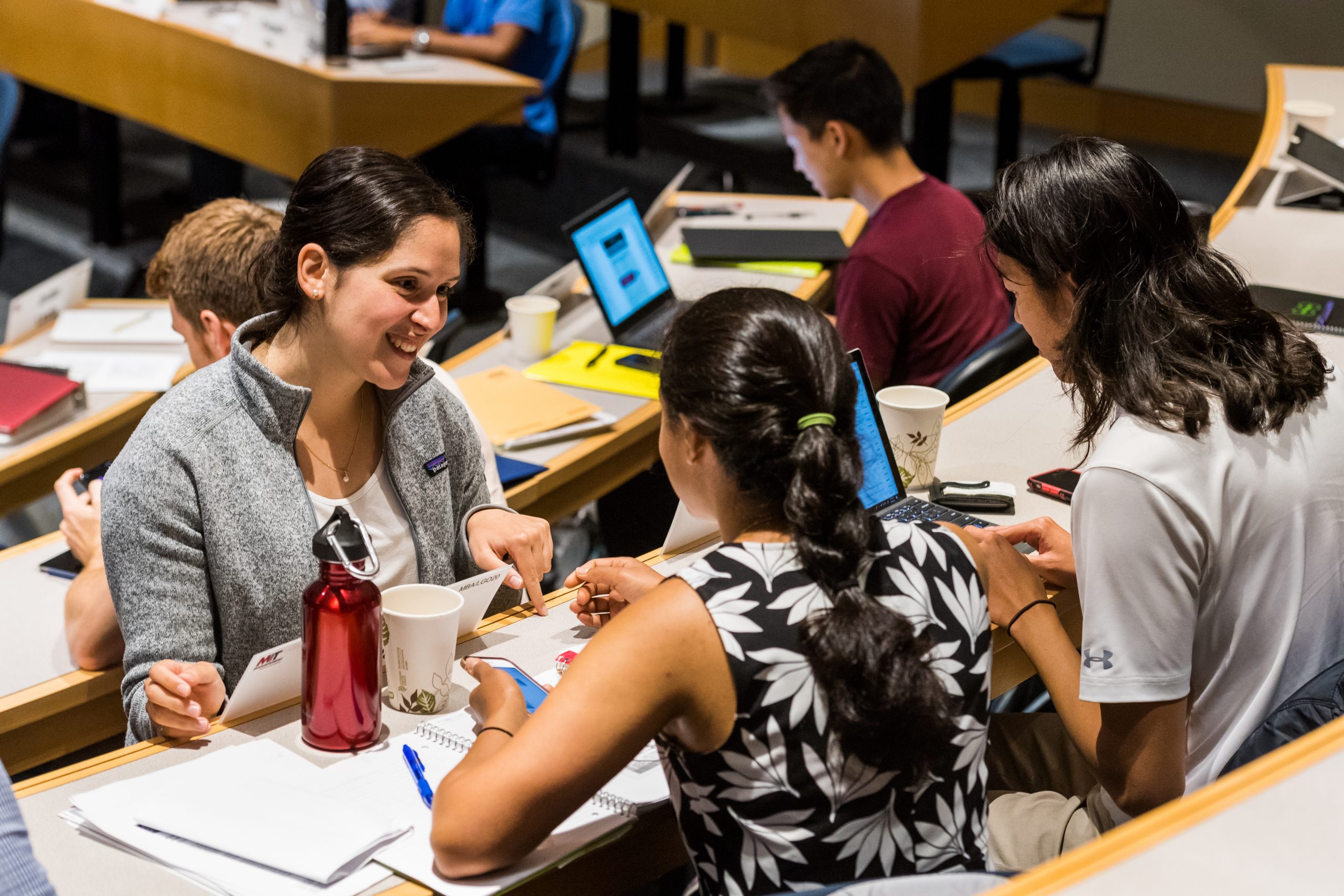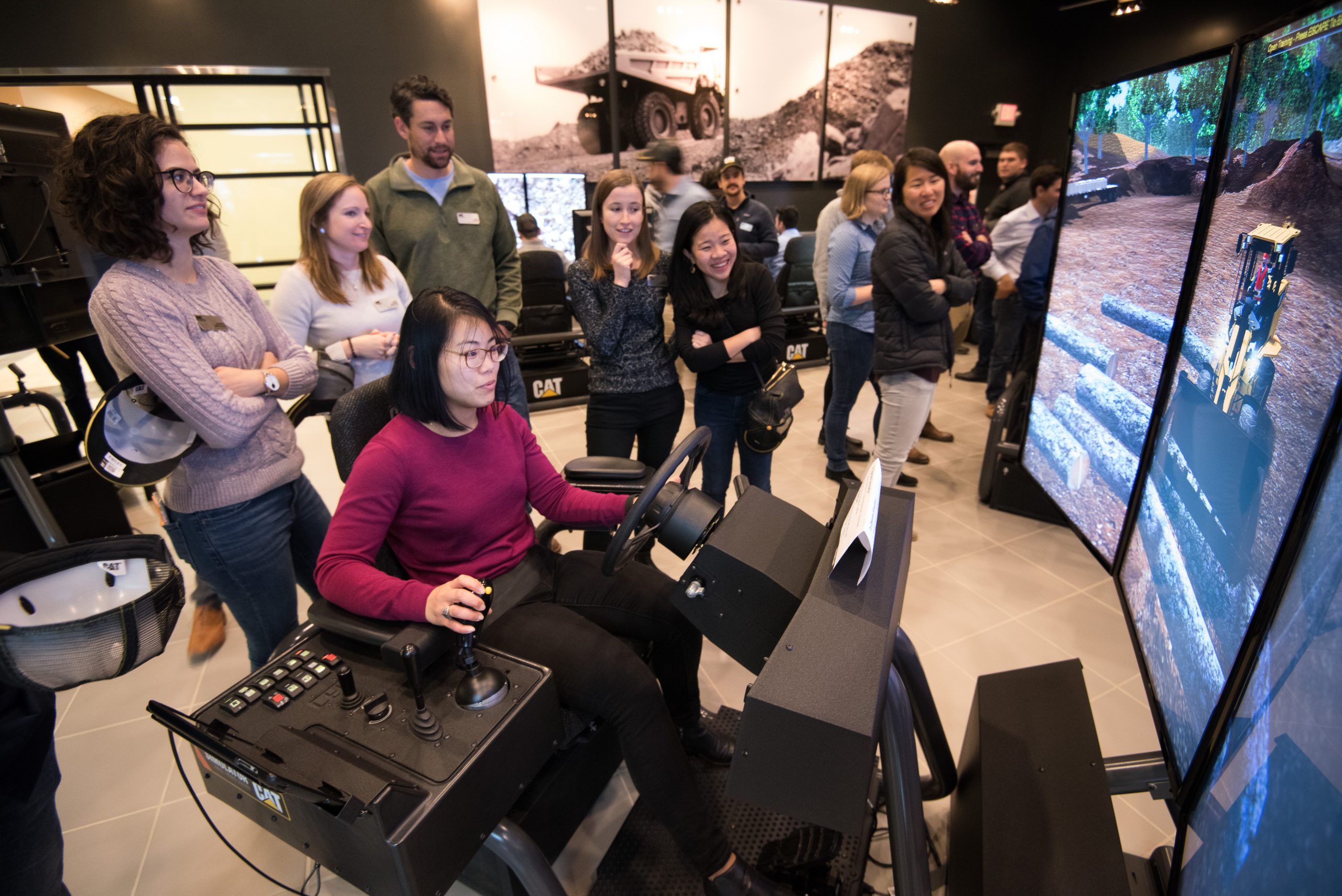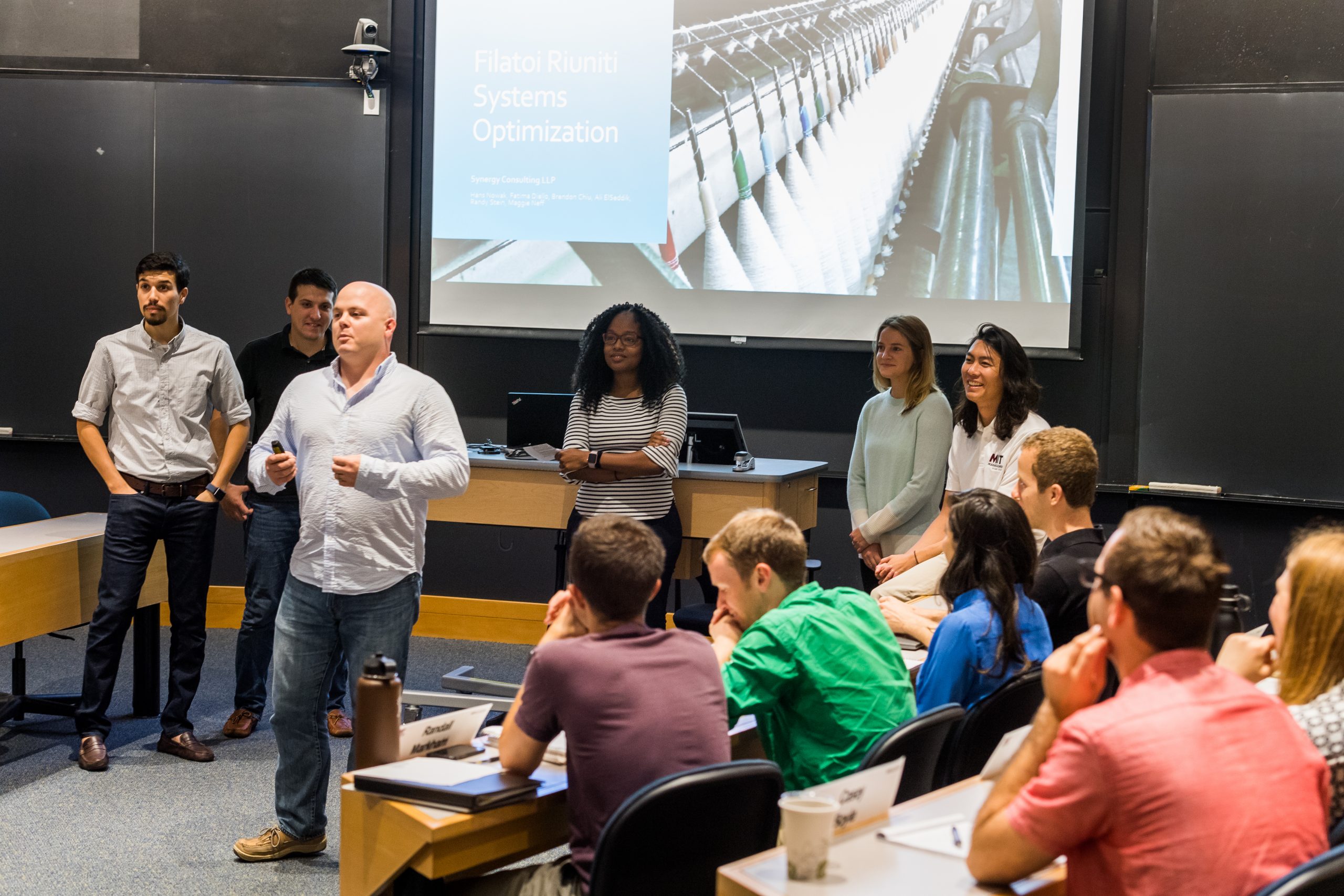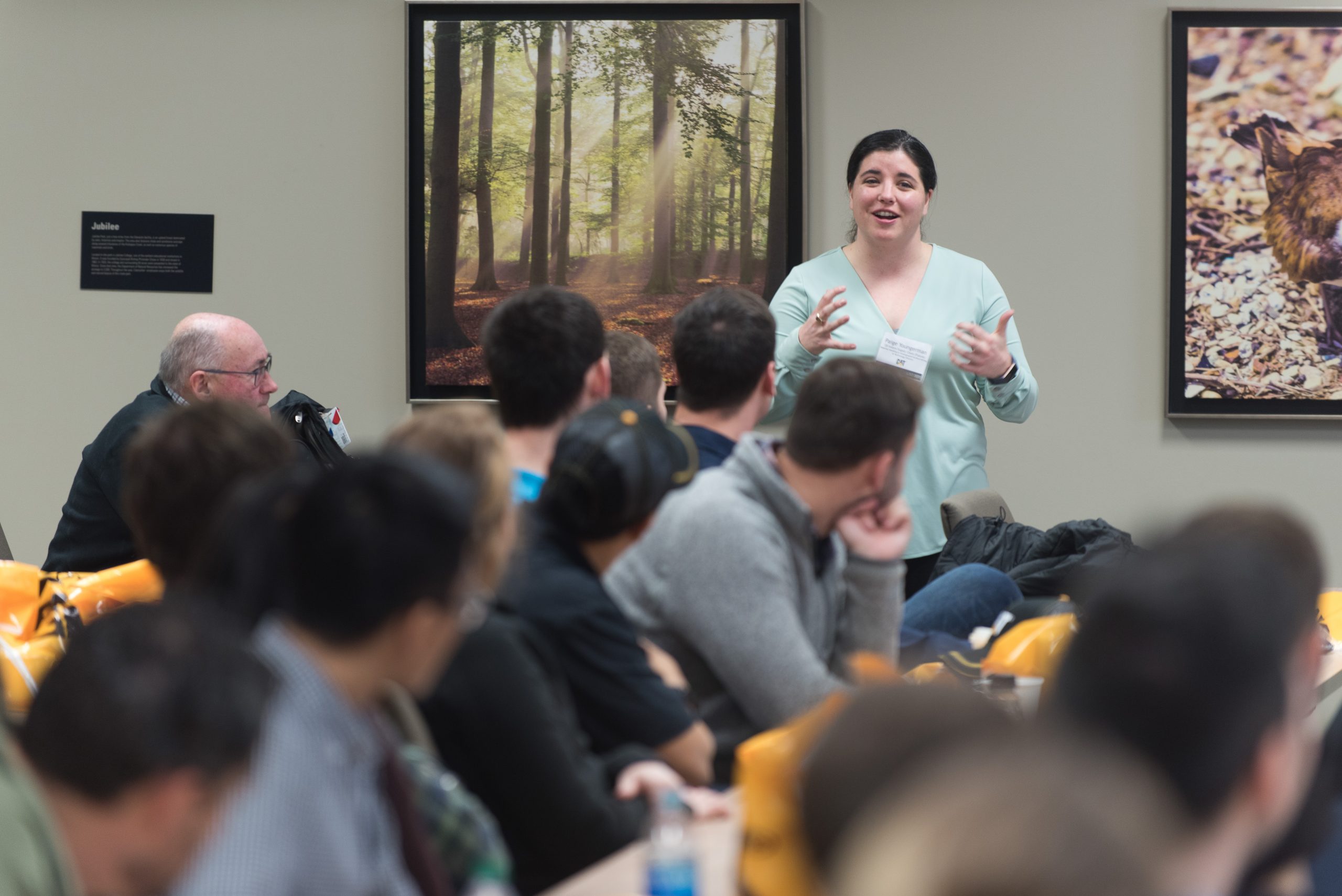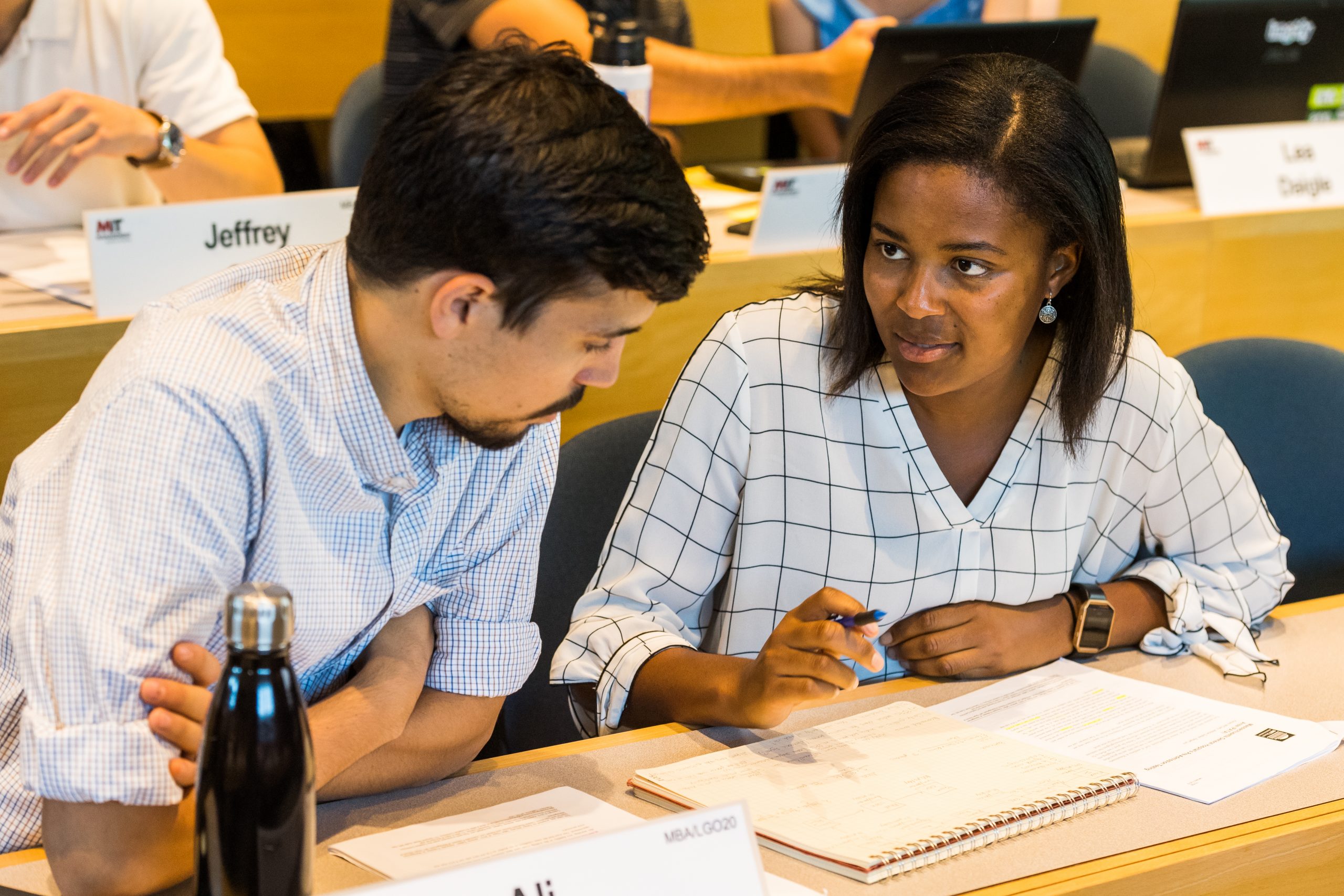LGO is an MIT dual degree program with curriculum that combines the requirements a Master of Business Administration (MBA) from the Sloan School of Management and a Master of Science (SM) from the School of Engineering in one of seven disciplines.
Each LGO engineering department has world-class faculty, unique areas of expertise, and exciting research opportunities to guide our students to become the next generation of high-tech leaders.
MBA + Engineering
The LGO engineering and MBA dual degree experience prepares you for a unique position at the forefront of industry while directly applying the innovative thinking the MIT Sloan School is known for.
Every year, the MIT Sloan MBA program begins with about 400 students, about 50 of which are LGOs. The LGO cohort is fully integrated into the MBA program and LGOs benefit from the dynamic atmosphere in the Sloan MBA program, networking with Sloanies, and developing leadership and learning with the community.
The MIT School of Engineering has designed LGO’s curriculum to be flexible within each discipline and students are encouraged to follow their interests. During the admissions process, we admit LGOs directly into one of seven fields. Applicants select an engineering department when they apply. You’re encouraged to choose your field based on academic background, professional interests, and research goals. We’ve provided guidance to the admissions expectations on each department’s page.
Many common areas of interests for LGOs span multiple departments. The following is not an exhaustive list of research areas available to LGO students, but highlight some of the more popular areas of interest:
Manufacturing
- Mechanical Engineering: Design, Manufacturing and Product Development
- Aeronautics & Astronautics: Systems Design & Engineering
Supply Chain
- Civil & Environmental Engineering: Resilient Systems and Mobility
Product Development
- Mechanical Engineering: Design, Manufacturing and Product Development
- Electrical Engineering & Computer Science
Robotics/Automation
- Mechanical Engineering: Controls, Instrumentation and Robotics
- Electrical Engineering & Computer Science: Robotics
- Electrical Engineering & Computer Science: Systems Theory, Control, and Autonomy
- Aeronautics & Astronautics: Autonomous Systems & Decision-Making
AI/ML
- Electrical Engineering & Computer Science: Artificial Intelligence and Machine Learning
- Civil & Environmental Engineering: Resilient Systems and Mobility
- Operations Research Center
- Aeronautics & Astronautics: Autonomous Systems & Decision-Making
Optimization
- Electrical Engineering & Computer Science: Optimization and Game Theory
- Civil & Environmental Engineering: Resilient Systems and Mobility
- Operations Research Center
- Aeronautics & Astronautics: Systems Design & Engineering
Biotechnology/Bioengineering
- Chemical Engineering: Biomedical and Biotechnology
- Mechanical Engineering: Bioengineering
- Electrical Engineering & Computer Science: Biological and Medical Devices and Systems
- Civil & Environmental Engineering: Resilient Systems and Mobility
Transportation
- Civil & Environmental Engineering: Resilient Systems and Mobility
- Aeronautics & Astronautics: Transportation & Exploration
- Aeronautics & Astronautics: Vehicle Design & Engineering
- Mechanical Engineering: Design, Manufacturing and Product Development
Sustainability
- Civil & Environmental Engineering: Sustainable Materials and Infrastructure
- Mechanical Engineering: Design, Manufacturing and Product Development
- Mechanical Engineering: Ocean Science and Engineering
Energy
- Nuclear Science and Engineering
- Mechanical Engineering: Energy Science and Engineering
- Electrical Engineering & Computer Science: Energy
- Civil & Environmental Engineering: Climate, Environment, and Life Sciences
LGO Summer Core
Beginning in June, these required courses prepare students for completing the dual degree, further engineering coursework at MIT, and a management career in operations and technology. The summer courses include focuses on Organizational Leadership and Change, Lean Tools and Applications, Programming in Python, Operations Management, Building and Leading Effective Teams, Systems Optimization and Analysis, and Probability, Statistics, Data Analytics, and Machine Learning.
The Summer Core also includes local plant treks around the Boston area and the foundations of LGO’s Leadership Components.
Open Curriculum
The Sloan MBA has a one-semester core. LGO students join an MBA core team in their first fall semester and take MBA core classes with their team. Following core, Sloan MBAs have an open curriculum to pursue what is most interesting to them. For LGOs, a portion of the remaining electives are a preset LGO-specific curriculum in operations and leadership.
LGOs have about 6-10 courses to take as free Sloan electives toward their MBA degree. Many LGOs fill gaps in their knowledge with courses in finance and branding. Others take a deep-dive into operations management and business analytics. It’s up to you to choose. LGOs (and all Sloan MBAs) can take up to three elective courses in any MIT or Harvard offering outside of Sloan’s management courses.
Product Design
LGOs are required to take at least one course in product design and development, which can count as either an MBA or engineering elective. Design courses usually cover aspects of the design process, design for manufacturing (DFM), product architecture, user needs, and prototyping or simulation. Approved design courses include:
- Innovation Teams (i-Teams)
- Introduction to Robotics
- Global Engineering
- Intelligent Multimodal User Interfaces
- Medical Device Design
- Principles and Practice of Drug Development
- Engineering Apollo
- Aerospace Biomedical and Life Support Engineering
- Product Design and Development
Action Learning
Applying knowledge immediately in the real world is a cornerstone of MIT education and this interdisciplinary dual degree program. Many graduate courses throughout the institute have a project or consulting component. At MIT Sloan, students can take Action Learning Labs to gain hands-on experience in various subject areas. Popular among LGOs are:
LGOs also spend six months off-campus to work on the LGO Internship: a research fellowship at an LGO partner company that combines rigorous graduate level engineering and business applications. Internship research forms the basis for the master’s thesis, overseen by both a management advisor from Sloan and an engineering advisor from the engineering department.


